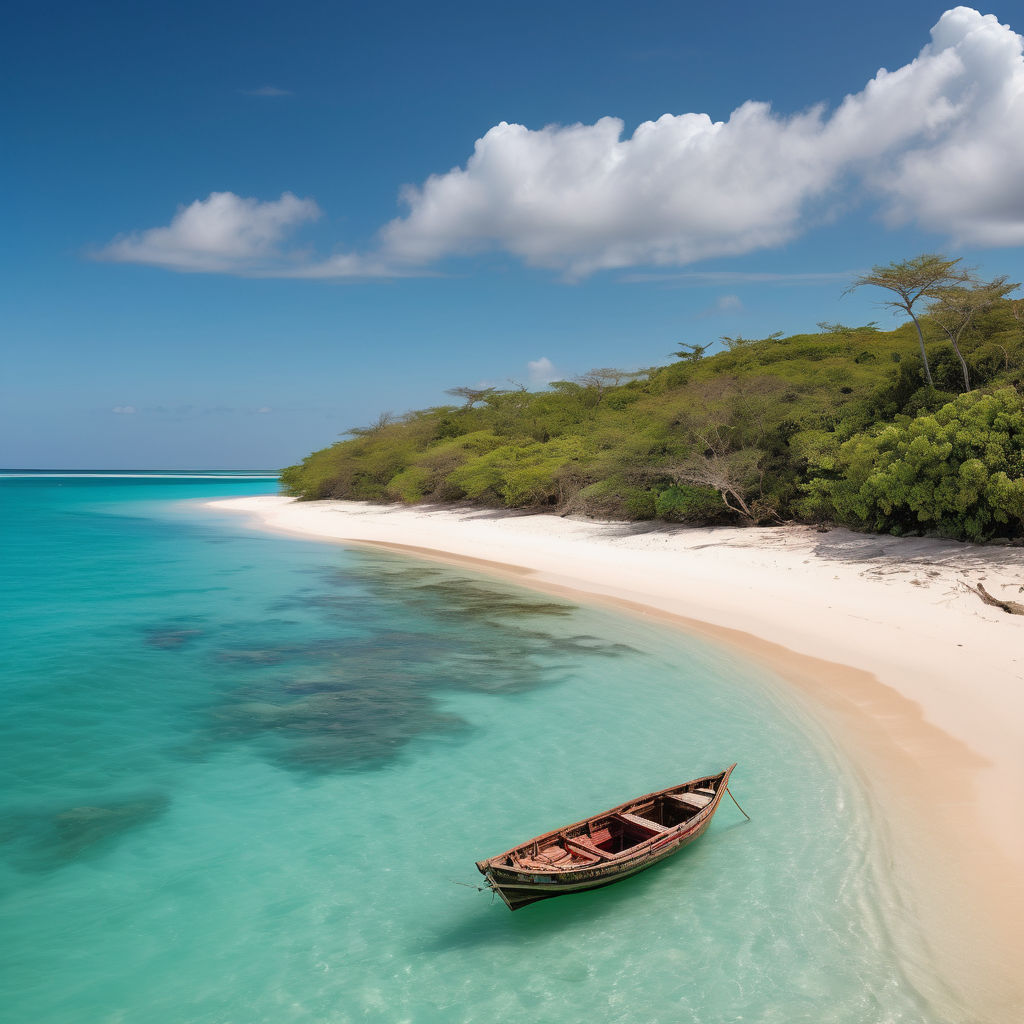Discover Mozambique: A Blend of African, Portuguese, and Arab Influences
Explore Mozambique's Rich Cultural Heritage and Stunning Coastlines

Introduction to Mozambique
Mozambique is a southeastern African country known for its extensive Indian Ocean coastline, which is dotted with popular beaches like Tofo, as well as offshore marine parks. The country shares borders with Tanzania to the north, Malawi, and Zambia to the northwest, Zimbabwe to the west, South Africa and Eswatini to the southwest, and the Indian Ocean to the east. Maputo, the capital city, is the largest city and the economic and cultural hub of Mozambique. Other major cities include Beira, Nampula, and Pemba. Mozambique’s rich cultural heritage is a blend of African, Portuguese, and Arab influences, reflected in its music, dance, art, and cuisine.
Cross-national and Cross-cultural Understanding
Mozambicans generally perceive and engage with other cultures with a spirit of openness and curiosity. This attitude is fostered by the country’s history of trade and cultural exchange along the Indian Ocean coast. Mozambique has a diverse population that includes a significant number of expatriates and people from various cultural backgrounds. This diversity is celebrated and embraced in everyday life. The government and various organizations in Mozambique actively promote cross-cultural understanding through cultural exchanges, educational programs, and international partnerships. For instance, the Eduardo Mondlane University in Maputo has numerous exchange programs with universities around the world, enabling students to experience different cultures firsthand. Cultural festivals, such as the annual Festival of the Marrabenta, attract international artists and visitors, fostering a sense of global community. Additionally, Mozambique is a member of several international organizations, including the African Union and the Community of Portuguese Language Countries (CPLP). These affiliations promote cultural diplomacy and mutual understanding among member states, enhancing Mozambique’s cross-cultural relationships.
Interactions and Social Dynamics
Interactions between Mozambicans and foreigners are typically warm and welcoming. Social behaviors in Mozambique emphasize respect, hospitality, and a strong sense of community. Greetings are an important aspect of social interaction, and it is customary to shake hands and inquire about each other’s well-being. Communication styles in Mozambique vary by region and ethnic group but generally involve a mix of Portuguese, the official language, and indigenous languages such as Makhuwa, Sena, and Tsonga. Multilingualism is common, particularly in urban areas, which facilitates interactions with foreigners. English is also increasingly spoken, especially among the younger generation and in business contexts. Cultural norms in Mozambique place a high value on family and community ties. Social gatherings often include extended family members and are characterized by communal meals, music, and dance. This communal lifestyle extends to interactions with foreigners, who are often welcomed into local homes and communities with open arms.
Views on Dating and Relationships
Dating and relationships in Mozambique are influenced by both traditional values and modern perspectives. Attitudes towards dating foreigners are generally open, especially in urban areas where there is greater exposure to different cultures. However, cultural expectations and traditions still play a significant role in shaping these relationships. In many parts of Mozambique, dating is viewed as a serious step towards marriage, and family involvement is crucial. Foreigners dating Mozambican individuals may need to navigate these cultural expectations and demonstrate respect for local customs. For instance, it is common for families to expect a formal introduction of a potential partner and to be involved in significant decisions regarding the relationship. Despite these expectations, there is a growing acceptance of cross-cultural relationships, particularly among the younger generation. This openness is reflected in the increasing number of intercultural couples and mixed marriages in Mozambique.
Marriage and Family
Marrying foreigners in Mozambique is generally accepted, though it involves certain legal, social, and familial considerations. Legally, foreigners must comply with Mozambican marriage laws, which may include obtaining specific documents and permissions. Socially, cross-cultural marriages can present challenges due to differences in customs, traditions, and family expectations. Family plays a central role in Mozambican marriages, and it is essential for foreigners to understand and respect this aspect. Marriage ceremonies often involve traditional rituals and celebrations that highlight the importance of family and community. These ceremonies can vary significantly depending on the ethnic group and region but typically include vibrant music, dance, and communal feasts. Trends in cross-cultural marriages indicate a growing acceptance and integration of diverse cultural practices. Many Mozambican couples incorporate elements from both cultures into their wedding ceremonies and daily lives, creating a unique blend of traditions. This cultural fusion not only enriches the couples' lives but also promotes mutual understanding and respect between different communities.